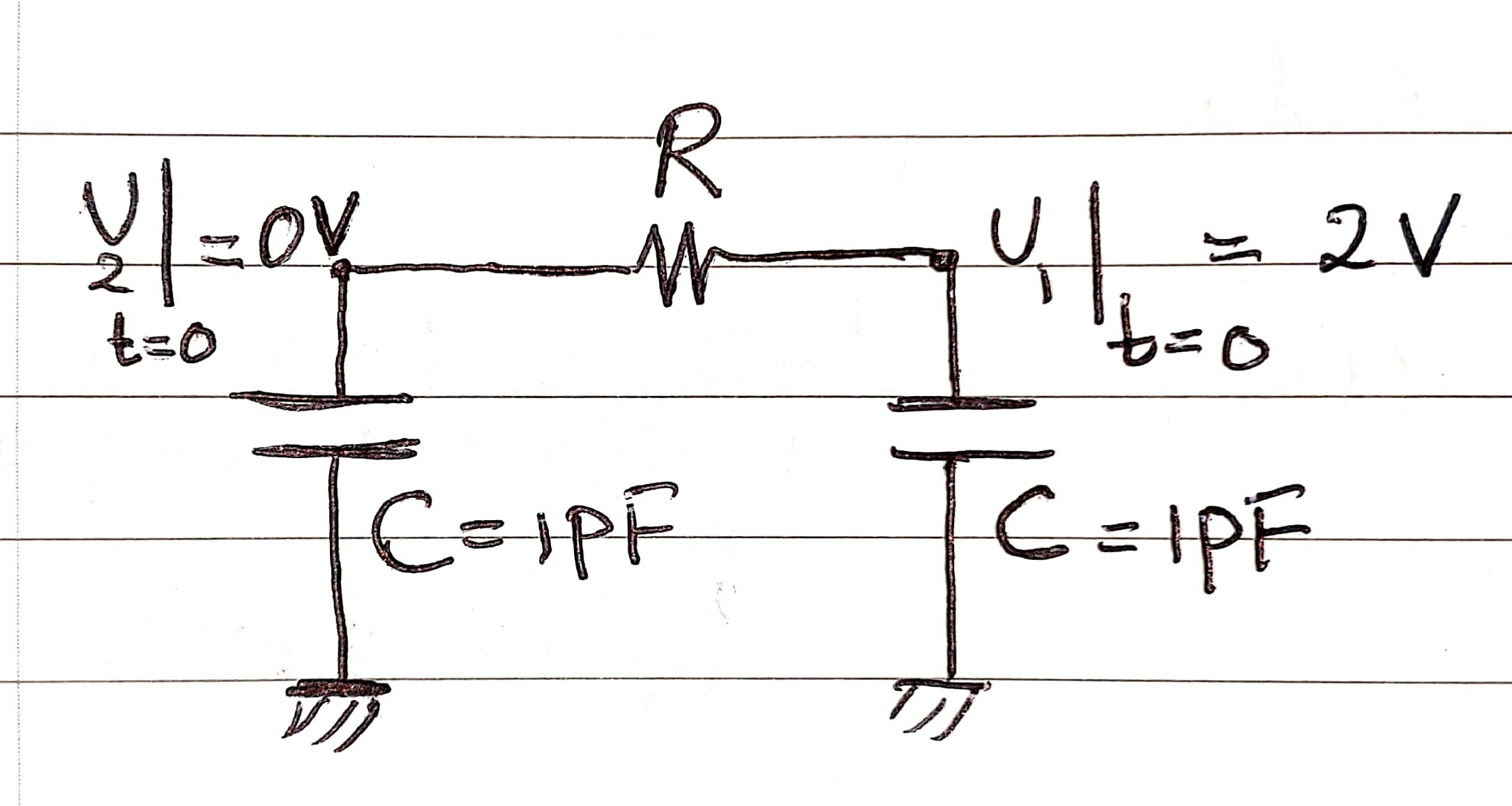Dissipated Energy

For the shown circuit, Each capacitor has a capacitance 1pF. The right side capacitor has an initial voltage 2V, while the left side capacitor has an initial voltage 0V. Does the energy dissipated in the resistor, due to the current passing through it from t=0 to t ==> infinity, depend on R value?
This section requires Javascript.
You are seeing this because something didn't load right. We suggest you, (a) try
refreshing the page, (b) enabling javascript if it is disabled on your browser and,
finally, (c)
loading the
non-javascript version of this page
. We're sorry about the hassle.
The initial charge stored on the right capacitor will be distributed equally between the two capacitors.
The energy loss in the resistance= Energy stored initially in the right cap - energy stored finally in the two capacitors
This subtraction value only depends on initial voltages and capacitances values. It has nothing to do with the resistance value!
You can reach to the same result by integrating power dissipated by the resistance over time from 0 to infinity.